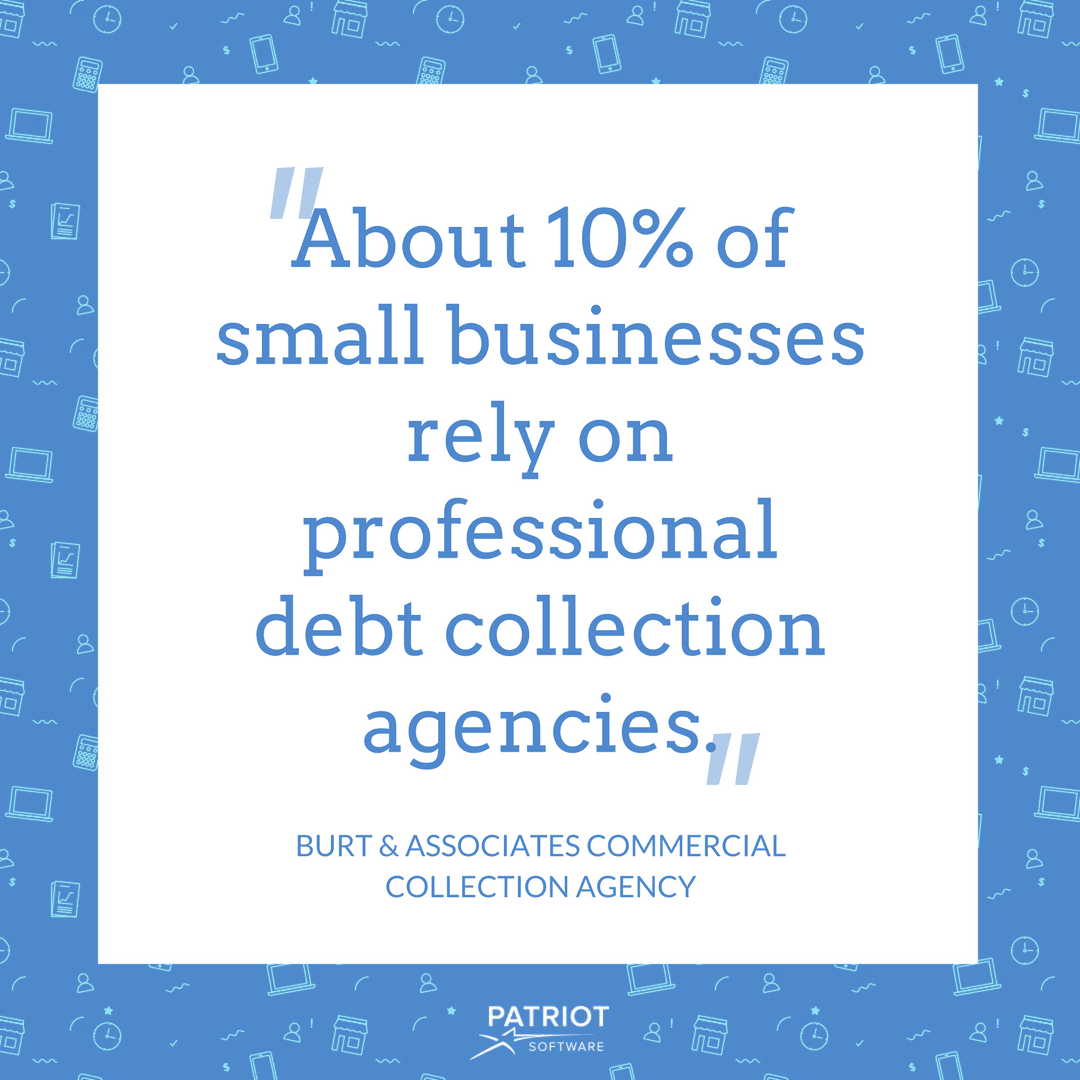Many small businesses extend credit to customers instead of collecting money at the point of sale. The business provides a good or service and the customer pays on a later date. Do you invoice your customers? If so, you need a small business debt collection strategy.
What is small business debt collection?
Your business might bring in a lot of sales. But, if you can’t get customers to pay on time, you will have serious problems with business cash flow. A small business debt collection strategy should help you create a steady inflow of cash, encourage on-time payments, and map out how to handle late collections.
For a variety of reasons, customers sometimes do not pay their bill. Usually, a late-paying customer will fall under one of the following categories:
- They want to pay but can’t because of financial issues.
- They intentionally delay payments to manage their money.
- They are avoiding payment altogether.
You’re more likely to collect money from the first two types of late-paying customers. You might try to recover a partial or full payment. In most cases, the last customer won’t pay. Keep these types of late-payers in mind as you create your business debt collection strategy.
7 tips for how to collect a debt
There’s no way to end late payments altogether. Dealing with late-paying customers is part of owning a business. But, you can take steps to minimize collection issues. Try these seven tips for small business collections.
1. Put your policy in writing
Many times, specific directions go in one ear and out the other when you say them verbally. It’s human nature. We’re not designed to remember every detail of our day-to-day conversations.
Write your collection policy down to give the customer a reference. Include your invoice payment terms on bills and other customer documents. If you don’t receive money by the due date, send a collection letter. Save copies of all collection documents for your records.
2. Communicate clearly
A good collection strategy is all about communicating with customers. The more open you are about payment expectations, the easier it is for customers to pay you. Don’t leave them guessing about any part of the process.
Establish a payment policy before completing a sale. Make sure the customer understands and agrees to the terms, including late fees.
Whether you talk on the phone or send a collection letter, don’t forget that a person is receiving your message. The way you present yourself has a big role in how fast you get paid. Be clear, polite, and professional to create loyal customers.
3. Pay attention to timing
Speed is key when it comes to getting paid for your goods and services. Don’t delay contacting customers when payments start to slow. Invoice a customer right after making a sale. If the due date passes, rebill the customer immediately. Send reminders periodically with all the information a customer needs to pay you.
4. Show compassion
One perk of owning a small business over a large corporation is that you can get to know your customers. You might be able to listen to their circumstances and renegotiate the payment terms.
Try to come up with unique solutions for customers, rather than giving a standard ultimatum. You might need to get creative, but the extra effort will likely pay off in the long run.
Do your best to work out a payment plan or other arrangements with the customer who has not paid their bill. Unemployment, injury, illness or some other pressing issue might have distracted the customer. Or, the bill could have been misplaced. To retain customer satisfaction, give options.
5. Keep efforts short and professional
Though compassion is important, don’t get too personal when it comes to money collection. Be short and professional when contacting late-paying customers. Let them know you’re willing to work with their circumstances, but don’t dig into details about why they haven’t paid. You don’t want to sound threatening or like you’re personally attacking the customer.
Harassing late-paying customers can cause you to violate small business debt collection laws. You might end up with a lawsuit and ruined reputation. Don’t excessively contact the customer or call during late hours. Be specific about why you’re contacting the customer, but remain professional.
6. Use a collection agency
Your primary goal should be to get the customer to pay the bill with the least amount of effort and cost. But at some point, you might decide to hire a collection agency.
If you send unpaid accounts to a collection agency, be sure to get references and select a reputable firm. Expect to pay a fee, either based on the amount collected or the time spent collecting the funds.

7. Know when to quit
Money collection takes a lot of time and energy. Some payments might not be worth the trouble it takes to collect them. If your efforts on a specific account waste a lot of resources, consider cutting your losses. Make a note of the situation for future reference. In some cases, you can write off bad debt.
Need a simple way to invoice customers? With Patriot’s online accounting software, you can create unlimited invoices and track unpaid bills in a few easy steps. We offer free, U.S.-based support. Try it for free today.
